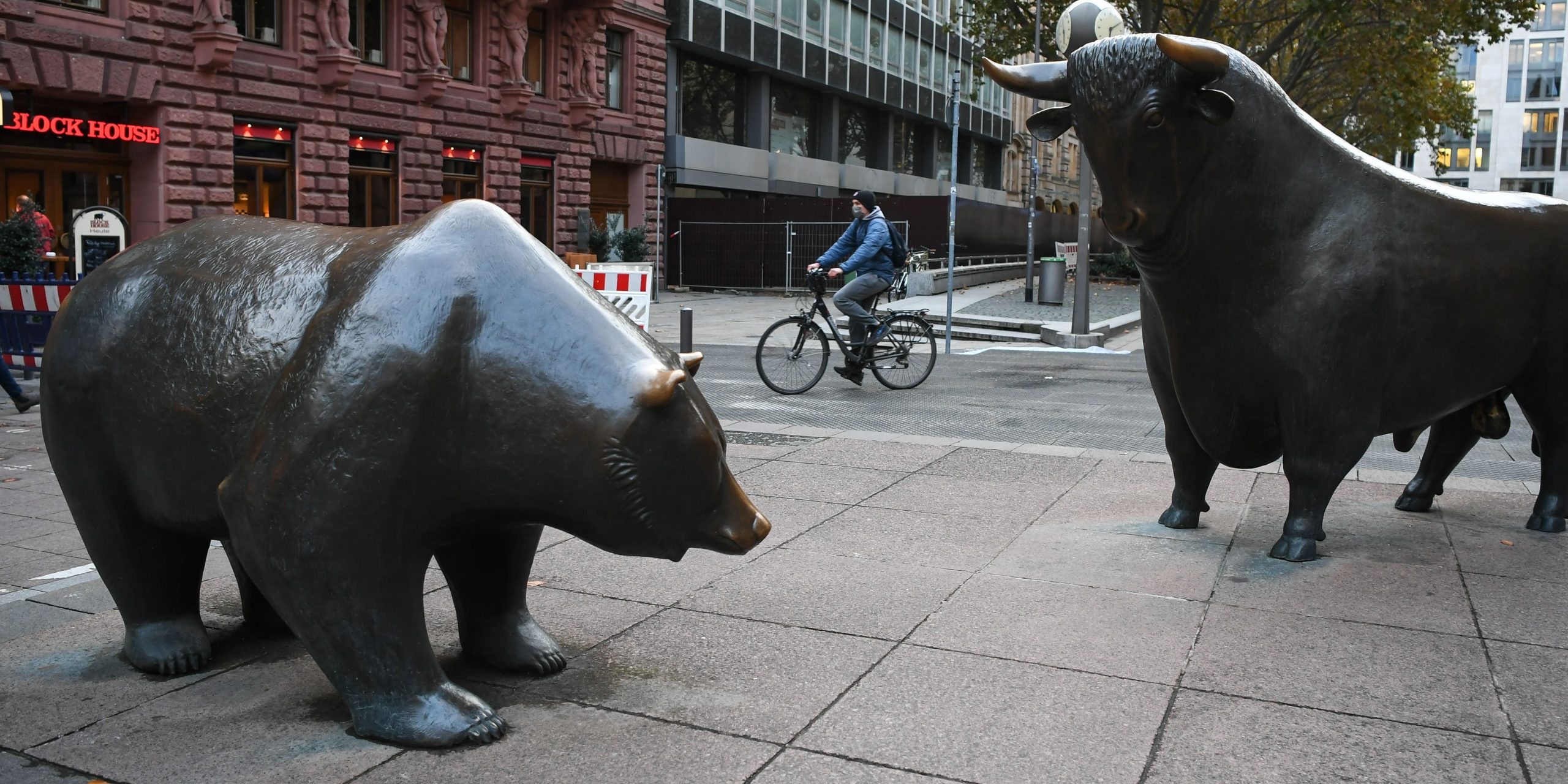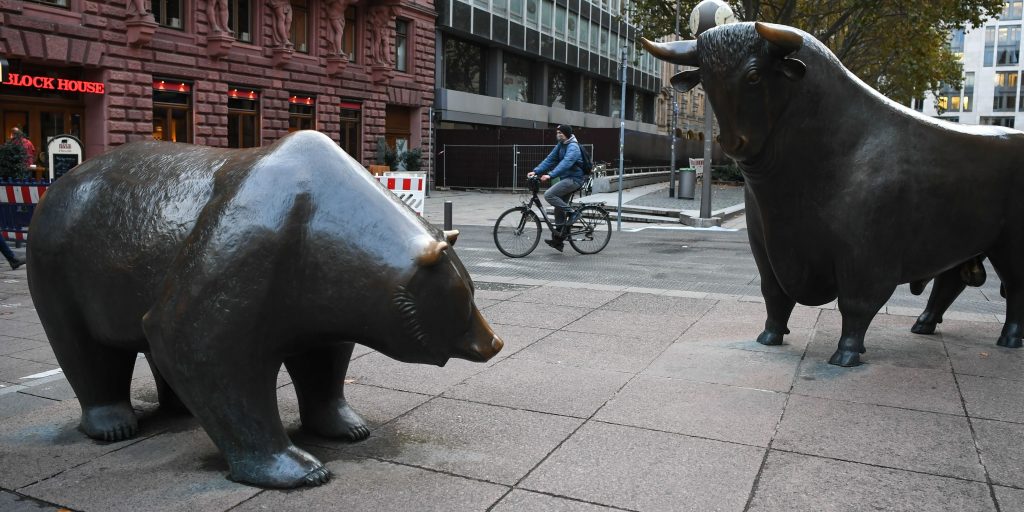
Xinhua/Getty Images
- The Federal Reserve has shifted its outlook for interest rates and inflation and short-dated bonds have taken a hit.
- The Fed's predictions have hurt global equities and lifted shorter-term Treasury note yields.
- Longer-dated yields have fallen sharply, showing investors are not worried about a sustained pickup in inflation.
- Sign up here for our daily newsletter, 10 Things Before the Opening Bell.
The US Treasury market is showing investors are preparing for a faster pickup in inflation and borrowing rates, after the Federal Reserve indicated last week it could raise interest rates sooner than previously expected, but they don't expect that to last.
When the Fed said after its monetary policy meeting that it could raise rates by the end of 2023 in response to more robust economic growth and inflation, global equities sold off, along with other interest-rate sensitive assets such as commodities, and short-term Treasurys in particular, sending 2-year yields to their highest in well over a year.
But that same hawkishness has not played out across the whole of the Treasury market. Since Wednesday last week, the yield on the 30-year US Treasury bond has dropped by around 20 basis points to its lowest since February, reflecting a belief among investors that the Fed will likely be successful in warding off a damaging inflationary spike.
It was last at 2.064% at 9.23 am E.T. on Monday.
In contrast, yield on the two-year Treasury note has risen by around 13.5 basis points since the Fed's announcement, bringing yield up to 0.27% as of the early hours of US trading on Monday – its highest since January. This has brought the gap, or spread, between 2-year and 30-year yields to its narrowest since February.
St Louis regional Fed President James Bullard added fuel to the trade. He said in an interview on Friday the central bank could even raise rates by the end of next year. He also confirmed the Fed was discussing winding down its asset-purchase program.
The two-year Treasury note is the most sensitive to shifts in interest rate expectations and Bullard's comments prompted the yield to almost double at one point in the day on Friday, before subsiding somewhat.
The steeper drop in yields on longer-term Treasurys, however, indicates investors believe the Fed will be likely be successful in tempering inflation and that they do not believe markets will experience a series of aggressive rate increases in the long-term. Instead they seem to expect a slowdown in economic growth, coupled with low levels of inflation in the long-term - even if inflation levels should rise sharply in the immediate future, analysts said.
Equities at least could be for more pain, at least in the short term, according to Jeffrey Halley, senior market analyst at OANDA. "If it continues, we may see an overdue reckoning for some of the dumber investment decisions being made by investors searching for yield in a zero per cent world-high yield credit and SPACs for a start." he said.

